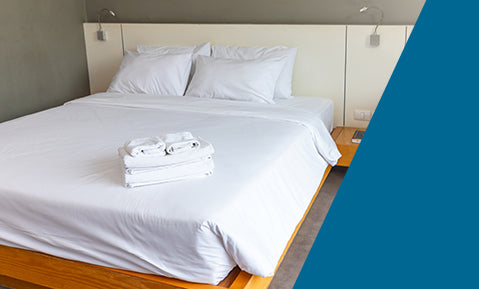
Sleep and memory formation have a strong connection. Research has shown that sleep is necessary for the formation of new memories and for the consolidation of existing ones. During sleep, the brain processes and stores new information, and helps to reinforce the connections between neurons that are involved in memory formation.
Sleep is divided into two distinct states, REM (rapid eye movement) and non-REM (non-rapid eye movement). During non-REM sleep, the brain is thought to consolidate new information by strengthening the connections between neurons, while during REM sleep the brain is thought to review and process stored information. Both of these stages are necessary for the formation of new memories.
In addition to memory formation, sleep also plays a role in memory recall. Studies have shown that sleep deprivation can lead to impaired memory recall and performance. This is because during sleep the brain is able to process and store information more effectively, making it easier to recall and use this information when needed.
During sleep, the brain processes and stores information that was acquired during the day. The hippocampus – a brain region responsible for memory formation – is highly active during sleep, making connections between memories and transferring them to the neocortex, the part of the brain where long-term memories are stored.
Sleep is also associated with improved performance on memory tests. People who do not get enough sleep often have difficulty recalling information that was learned the day before. Conversely, people who get sufficient sleep often show improved memory performance when tested the following day.
The timing of sleep is important as well. Studies have shown that memories are more easily recalled when sleep follows soon after learning. This may be because the brain has more time to process and store information during the night.
What is Memories formation?

Memories are the intangible remnants of our experiences, the stored elements of our lives that we can look back on and use to make sense of the present. But how exactly do memories form in the human brain? In this article, we’ll explore the science behind memory formation and discuss how memories are stored and recalled in the brain.
The process of memory formation begins with the formation of a neural pathway. When we experience something, our neural pathways are strengthened and reinforced. This allows us to recall the experience more easily in the future. In order to form a long-term memory, our brain must encode the experience into a physical form. This is done by a process called consolidation. Consolidation is the process of taking information from short-term memory and turning it into a long-term memory.
During consolidation, our brain encodes the experience into a physical form. This is done by strengthening the connections between neurons in the brain. This process is aided by hormones and neurotransmitters, which help to strengthen the neural pathways associated with the memory. The more the memory is accessed and used, the stronger the neural pathways become.
Sleep has been found to play an important role in the consolidation of memories. Studies have found that the brain processes and consolidates memories during sleep, allowing them to be stored in long-term memory. Sleep deprivation has been found to impair the ability to encode memories and store them for future recall. In addition, sleep has been found to play a role in the formation of new memories.
Sleep and Memory Retrieval
Sleep has also been found to play an important role in the retrieval of memories. Studies have found that the amount of sleep one gets can affect the ability to retrieve memories. Sleep deprivation has been found to impair the retrieval of memories, while getting adequate amounts of sleep can enhance the ability to recall memories.
The Relationship between Memory and Sleep
Sleep is an essential part of our physical and mental health, but did you know that it also plays an important role in maintaining good memory? Studies have found that the amount and quality of sleep you get can have a significant effect on your memory.
Sleep Apnea affects memory

Sleep apnea can have a significant effect on memory due to its disruption of the sleep cycle. When the body is not able to get enough restorative sleep, it can lead to problems with focus, attention, and memory. The sleep deprivation caused by sleep apnea can cause difficulty remembering information and events, as well as difficulty with concentration and focus. It can also lead to confusion and difficulty with problem solving and making decisions. In some cases, individuals with sleep apnea can experience more severe memory issues, such as isolated memory loss and difficulty forming new memories. If left untreated, sleep apnea can cause memory problems to worsen over time. It causes
- Poor Quality of Sleep: Poor quality of sleep can lead to decreased alertness and concentration, which can affect memory.
- Reduced Oxygen Levels: Sleep apnea can reduce oxygen levels in the brain, which can impair memory.
- Reduced Concentration: People with sleep apnea often experience fatigue and difficulty concentrating, which can interfere with their ability to retain information and recall it later.
- Disruption of REM sleep: Sleep apnea can disrupt the REM (rapid eye movement) stage of sleep, which is critical for forming and consolidating memories.
- Anxiety and Stress: Sleep apnea can cause anxiety and stress, which can interfere with the ability to form and recall memories.
- Cognitive Decline: Over time, sleep apnea can lead to cognitive decline, including memory problems.

Research has also shown that not getting enough sleep can impair your ability to remember. Studies have shown that people who are sleep deprived have a harder time focusing and recalling information. This is because sleep deprivation can lead to decreased levels of brain plasticity and impair the ability of the hippocampus (a major brain area involved in memory formation) to store information.
Lack of sleep has an adverse effect on memory consolidation and memory retrieval. There are some efficient remedies to tackle the bad sleep habit and maintain a healthy routine.
- Practice relaxation techniques before bed, such as deep breathing, progressive muscle relaxation, yoga, or mindfulness.
- Exercise regularly. Physical activity can help reduce stress and release endorphins that can improve sleep quality.
- Practice good sleep hygiene by avoiding caffeine, alcohol, and nicotine late in the day and establishing a consistent sleep routine.
- Try to limit your exposure to negative memories and emotions before bed. This can help reduce stress and improve overall sleep.
- Consider therapy or counseling. Talking out your emotions can help reduce the power of negative memories and help you sleep more peacefully.
- Utilize grounding techniques, such as focusing on your five senses or counting to ten, to bring yourself back to the present moment and out of difficult memories.
- Try using guided imagery or visualization to relax your mind and body before bed.
- Consider using supplements or herbs that promote relaxation, such as valerian root or melatonin. Consult with your healthcare provider before taking any supplements.
Insomnia causes memory loss

Insomnia can have a serious effect on an individual’s mental and physical health. It can cause increased stress, fatigue, irritability, depression, and anxiety. It can also lead to problems with concentration and memory, and can interfere with work, school, and social activities. Additionally, insomnia can lead to other physical health problems due to the lack of sleep, such as weakened immunity, digestive problems, headaches, and an increased risk of diabetes, heart disease, and obesity. In extreme cases, insomnia can even lead to hallucinations and delusions.
Sleep is essential for a healthy human body and mind. In recent years, research has focused on the role of sleep in cognitive functioning, specifically memory. Sleep is believed to play an important role in the formation, storage, and retrieval of memories.
Right now, what you should do is to recheck your sleeping habits and perform some of the remedial measures as enumerated above for prevention of acquiring short term memory loss.
No one wants to forget the precious moment of their life for a bad sleeping habit. Right?












